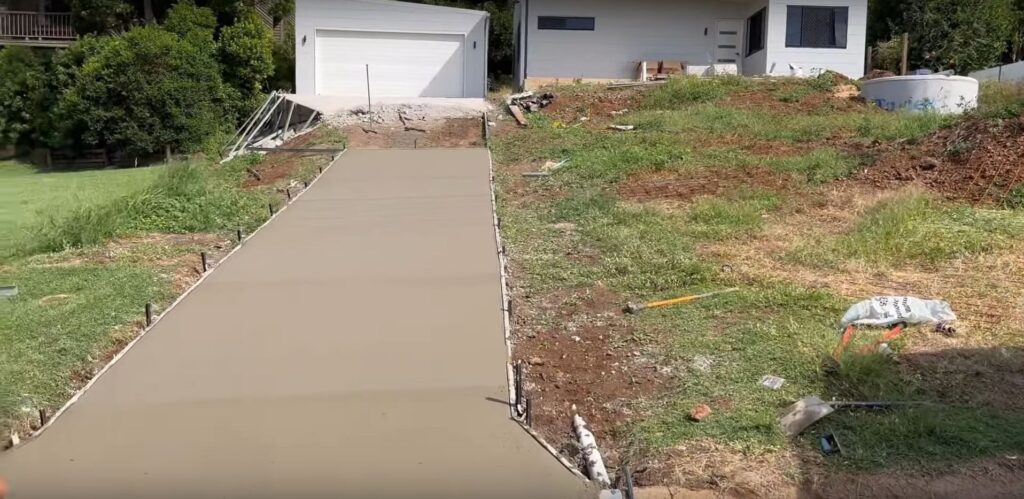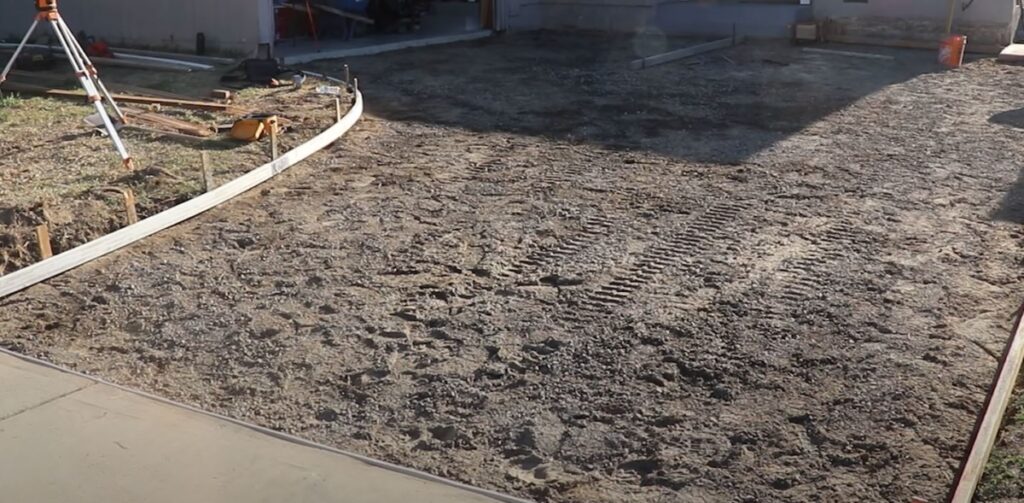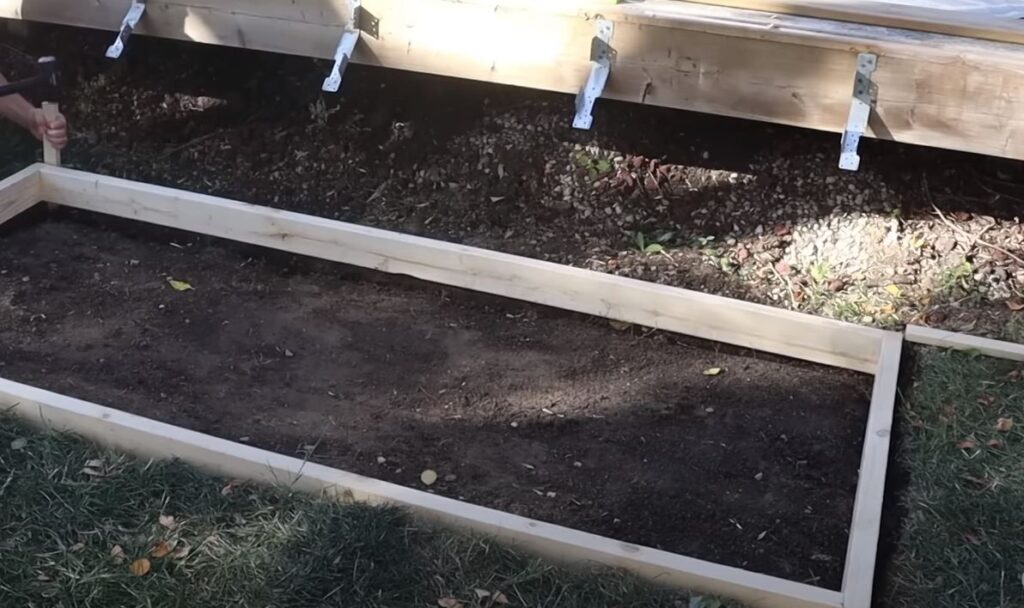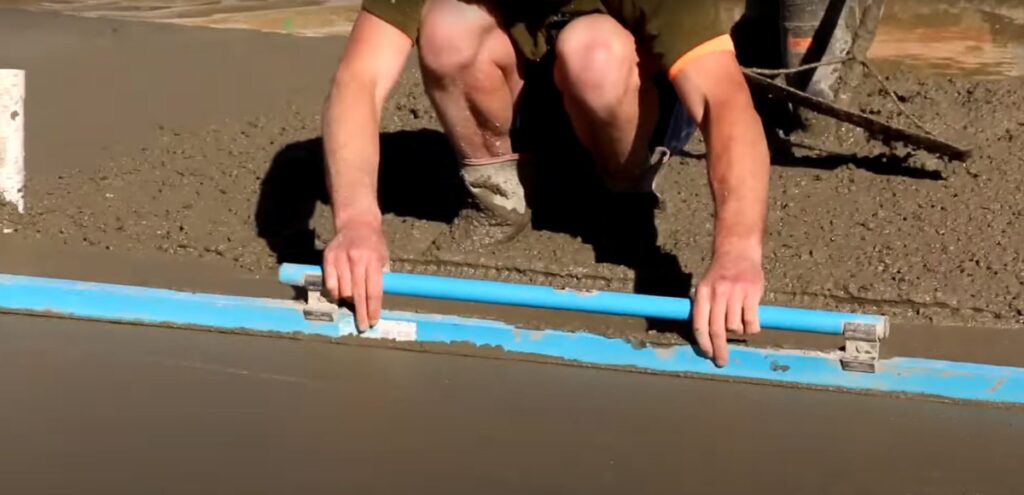Concrete Mix for Auckland Driveways: Getting it Right
A Blend Suited for Auckland’s Unique Climate
Auckland, with its coastal environment and varied weather patterns, demands a specific type of concrete mix for driveways. From the sultry summers in Howick to the occasional dampness in Papakura, the region’s microclimates have implications for concrete’s performance.
The Heart of the Mix: Strength and Durability
Compressive Strength:
For driveways, especially in areas with high vehicular traffic, it’s crucial to aim for a mix with a strength of around 4,000 psi (pounds per square inch). This ensures the driveway can withstand the regular weight of vehicles without compromising on durability.
Water-Cement Ratio:
Striking a balance in the water-cement ratio is pivotal. While adding more water improves workability, it could weaken the concrete. For Auckland driveways, a ratio leaning towards less water ensures strength while still being workable.
Air Entrainment: A Blessing for Variable Weather
Incorporating air bubbles into the concrete mix using air entrainment agents offers enhanced resistance against the freeze-thaw cycles – a boon for those unexpectedly cold Auckland mornings. This resistance means fewer cracks and prolonged life for the driveway.
Aggregate Choices: Balancing Aesthetics and Function
Aggregate, often considered the backbone of concrete, comes in various sizes and types. Your choices here influence not just the appearance but also the functional aspects:
- Crushed Stone vs. Smooth Pebbles: Crushed stone provides better interlocking, making the concrete more robust. On the other hand, smooth pebbles offer a distinct aesthetic and can be slightly more forgiving on tyres.
- Aggregate Size: Properly sized and well-graded aggregates, usually between 10mm to 20mm for driveways, ensure a compact and cohesive mix.
Admixtures: Customising Concrete to Auckland’s Needs
To optimise concrete for Auckland’s specific requirements, certain additives can be incorporated:
- Accelerators: Speed up the setting time, ideal for unexpected rain forecasts.
- Retarders: Slow down the setting time, useful during Auckland’s hotter days to prevent rapid drying.
- Plasticisers: Increase workability without compromising on the water-cement ratio.
Reinforcements: Adding an Extra Layer of Security
In areas like Papakura, where ground movement might be a slight concern, reinforcements can be a game-changer. While steel mesh is a traditional choice, fibrous additives are also gaining popularity. They distribute uniformly in the mix, providing an added layer of resistance against micro-cracks.
Safety First: Health Aspects of Concreting
While concrete offers robustness, it’s crucial to remember the health implications during the installation phase:
- Skin Contact: Wet concrete can cause skin irritations or even chemical burns. Always wear protective gloves and long-sleeved clothing.
- Inhalation: The dust from concrete can be harmful when inhaled. Wearing a dust mask, especially during mixing, is essential.
- Eye Safety: Goggles are a must. Concrete splashes can lead to serious eye injuries.
Auckland Exceptions: The Local Touch
While general principles of concreting apply everywhere, Auckland has its quirks:
- Seismic Considerations: Auckland’s position in the Pacific seismic belt demands attention to potential ground movements. Driveways should be designed to allow flexibility, absorbing minor shifts without cracking.
- Salt Air: Coastal areas, especially suburbs like Howick, have to consider the impact of salt in the air. This can accelerate the corrosion of steel reinforcements. Using coated reinforcements or alternative fibrous options can mitigate this.
The Science Behind the Mix
The synergy between concrete’s components isn’t just by chance. It’s a culmination of the principles of materials science and civil engineering. For instance, the reason for maintaining a specific water-cement ratio isn’t arbitrary. The hydration reaction, which cements undergo with water, forms a matrix that binds the aggregates. Too much water dilutes this matrix, leading to a weaker bond, while too little can hinder the reaction altogether.
A Typical Concrete Driveway Mix in Auckland: A Summary
| Aspect | Details/Recommendations |
| Climatic Considerations | Varied weather patterns; consider microclimates of areas like Howick and Papakura. |
| Compressive Strength | Aim for around 4,000 psi for high durability. |
| Water-Cement Ratio | Lean towards less water for strength while maintaining workability. |
| Air Entrainment | Use air entrainment agents for resistance against freeze-thaw cycles. |
| Aggregate Choices | Crushed Stone for strength and interlocking. – Smooth Pebbles for aesthetics. |
| Aggregate Size | Between 10mm to 20mm for optimal compactness and cohesion. |
| Admixtures | Accelerators for faster setting. – Retarders for slowing setting in heat. – Plasticisers for enhanced workability. |
| Reinforcements | Steel mesh or fibrous additives for resistance against cracks. |
| Health and Safety | Protective clothing for skin. Dust masks for inhalation. – Goggles for eye protection. |
| Auckland-specific Considerations | Seismic flexibility due to Pacific seismic belt. – Salt air resistance, especially in coastal areas like Howick. |
Professional Touch: A Worthwhile Investment
Your driveway is more than just a place to park your car; it’s an investment. Leveraging the expertise of Professional Concrete Driveways Auckland ensures you get a driveway that stands the test of time, adds to your property’s aesthetics, and ensures safety during the installation phase. Plus, the local touch, understanding Auckland’s unique requirements, can make all the difference.
Remember, a well-done driveway isn’t just about the mix. It’s about weaving science, local expertise, and practical requirements into a cohesive whole.
Frequently Asked Questions
Why is Auckland’s climate significant when choosing a concrete mix for driveways?
Auckland’s unique coastal environment and varied weather patterns can affect the performance and longevity of concrete. The mixture needs to cater to both sultry summers and unexpected colder spells.
How does aggregate choice affect the concrete’s performance?
The type and size of the aggregate influence both functional aspects and aesthetics of the concrete. Crushed stone, for instance, provides better strength due to interlocking, while smooth pebbles can be gentler on tyres and offer a different aesthetic.
Are admixtures necessary for concrete driveways in Auckland?
While not always necessary, admixtures like accelerators, retarders, and plasticisers can help optimise the concrete for Auckland’s specific requirements, be it faster setting times or increased workability.
Why is reinforcement recommended for driveways in certain Auckland suburbs?
In areas where ground movement might be a concern, such as Papakura, reinforcements like steel mesh or fibrous additives can provide an added layer of resistance against potential cracks.
What are the health and safety considerations during concrete installation?
When working with wet concrete, it’s essential to protect the skin to prevent irritations or chemical burns. Inhalation of concrete dust can be harmful, necessitating the use of dust masks. Also, to protect against concrete splashes, wearing goggles is recommended.
How do seismic considerations affect driveway design in Auckland?
Given Auckland’s position in the Pacific seismic belt, driveways should incorporate designs that can absorb minor ground movements without resulting in cracks or damage.
Why is the science of the water-cement ratio so critical?
The hydration reaction between cement and water forms a matrix that binds the aggregates. An optimal water-cement ratio ensures a strong bond, with too much water diluting this matrix and too little hindering the reaction.
Why should I consider hiring Professional Concrete Driveways Auckland for my project?
Leveraging professional expertise ensures your driveway caters to Auckland’s unique requirements, stands the test of time, and prioritises safety during the installation process. Their local understanding can make a significant difference in the project’s outcome.
Key Takeaways
Auckland’s Unique Climate: The varied weather patterns in Auckland, ranging from warm summers to cold spells, significantly influence the choice of concrete mix for driveways.
Aggregate Choice: The type and size of aggregates, whether crushed stone or smooth pebbles, impact both the aesthetics and the performance of the concrete.
Use of Admixtures: Admixtures, such as accelerators (for effects like exposed aggregates), retarders, and plasticisers, can optimise concrete performance for specific local requirements in Auckland.
Reinforcement Importance: Especially in regions like Papakura, reinforcements like steel mesh or fibrous additives are essential to prevent potential cracks due to ground movement.
Health and Safety: Protective measures, including the use of protective clothing, dust masks, and goggles, are crucial during the concrete installation phase to ensure safety.
Seismic Considerations: Auckland’s location in the Pacific seismic belt means driveways should be designed to withstand potential ground movements.
Water-Cement Ratio Science: An optimal balance in the water-cement ratio is foundational for achieving a strong bond in the concrete, ensuring its longevity and durability.
Professional Expertise: Engaging experts like Professional Concrete Driveways Auckland ensures that the driveway is not only durable but also aligned with Auckland’s unique requirements and safety standards.




